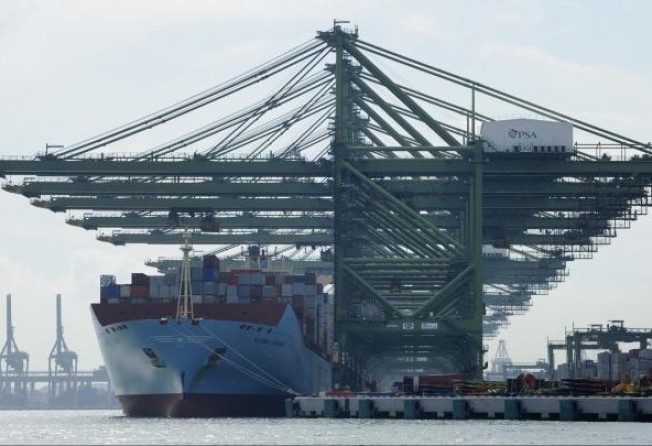
Christmas cargo boosts US rates as Europe routes face capacity reduction
While shipping lines are raising rates on Asia-US routes before the Christmas rush, capacity on Europe services will be cut as debt crisis lingers


AP Moeller-Maersk, the world's biggest container line, is among carriers raising rates on Asia-US routes as three-month-high consumer confidence and job growth at the quickest pace in five months tempt retailers to stock up before the holiday-shopping rush. By contrast, shipping lines are cutting capacity to Europe.
"Christmas will come to America, but probably not to Europe," said Soeren Skou, chief executive of AP Moeller-Maersk's container shipping arm.
On Asia-Europe routes, Copenhagen-based Maersk and other lines are paring services as economic confidence at a three-year low and record unemployment in the euro area dampen demand.
The slowdown has hit European retailers including Marks & Spencer and Carrefour, while US chains including Macy's, Target and Victoria's Secrets' parent Limited Brands are predicting higher sales.
"Europe is still on a downward trend," said Wan Min, executive vice-president at China Cosco Holdings, parent of the nation's biggest container line. "The US will see mild growth in shipping demand in the third quarter."
Maersk expected full-year Asia-North America volumes to increase as much as 3 per cent, compared with a 3 per cent decline on Europe routes, Skou said.
The company had pared capacity on Asia-Europe routes by about 10 per cent and it would make cuts in the fourth quarter, he said.
"We are seeing some of the peak from Asia to the US, but basically no peak for Asia to Europe," he said.
US retailers may boost container imports 7.3 per cent this month from a year earlier and 13 per cent in October as they stock up for the holidays, according to the Washington-based National Retail Federation.
The holiday-shopping season, which begins late November, made up between 25 and 40 per cent of US retailers' annual sales, the trade group said.
Maersk plans to raise spot transpacific rates by US$500 per 40-foot container from Monday. China Cosco is planning an US$800 per 20-foot container levy starting on October 1 because of port congestion.
China Shipping Container Lines intended to increase rates every month until November, said managing director Zhao Hongzhou, without elaboration.
Transpacific container rates have already risen 4.9 per cent since the end of July, as shippers retain some gains from an industrywide increase at the start of August, based on a Clarkson index. Asia-Europe rates have dropped 23 per cent in the same period, according to the ship- broker.
The decline has prompted the G6 Alliance, whose members include Neptune Orient Lines' APL and Orient Overseas International Limited (OOIL), to halt one of six weekly Asia-Europe services next month. The CKYH alliance will also cut of one of its five Asia-Europe services starting mid-October. Its members include China Cosco and Hanjin Shipping.
Shipping lines had idled 216 vessels, with a capacity of 467,000 containers, by the end of July, four times more than a year earlier as demand on Asia-Europe routes wanes, according to Alphaliner, a shipping-industry data provider.
"Europe is still very uncertain," said Stanley Shen, a spokesman at Hong Kong-based OOIL. "People are not spending money."
Shares in OOIL have dropped 11 per cent this year in Hong Kong trading, while China Cosco has tumbled 28 per cent. Maersk is little changed in Copenhagen.
European economic confidence fell to the lowest since 2009 last month and unemployment in the euro zone has surpassed 11 per cent as governments struggle to contain a sovereign debt crisis. Countries including Britain, Spain and Italy are all in recessions.
"In the coming period, everybody will be under pressure," Georges Plassat, chairman and chief executive at Carrefour, Europe's largest retailer, said in a conference call last month. "Retailers are going to have to face up to drop in consumption."
Shipping lines are also contending with fuel prices that have surged 55 per cent in the past two years.
Operators have slowed vessels to an average speed of 10.44 knots, about 10 per cent slower than a year earlier, to pare fuel usage and cut overcapacity, according to data compiled by Bloomberg.
On US routes a possible East- and Gulf-coast dock strike could disrupt shipments before the holiday season, Shen said.